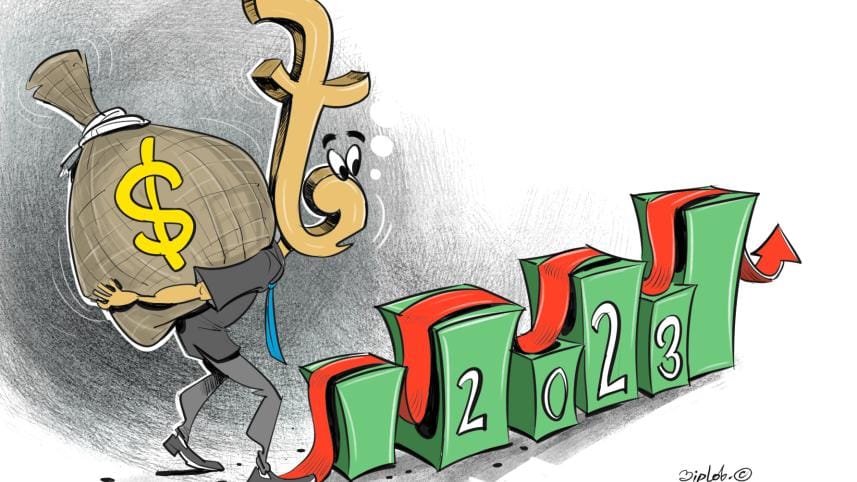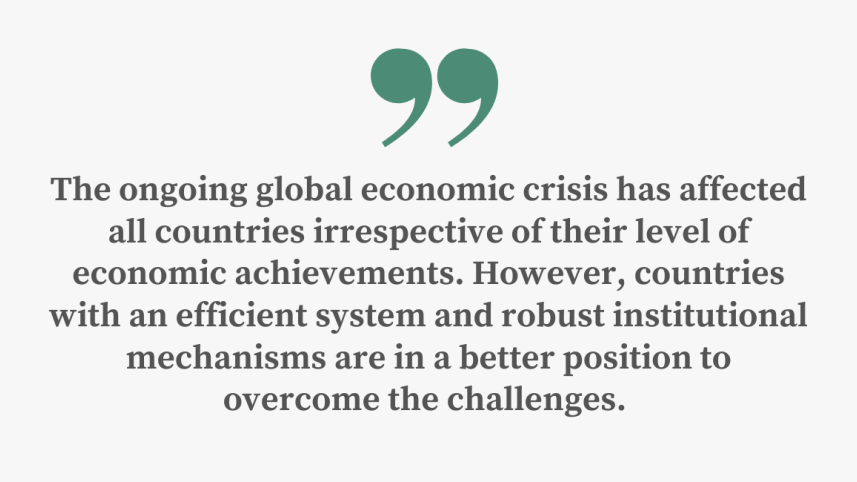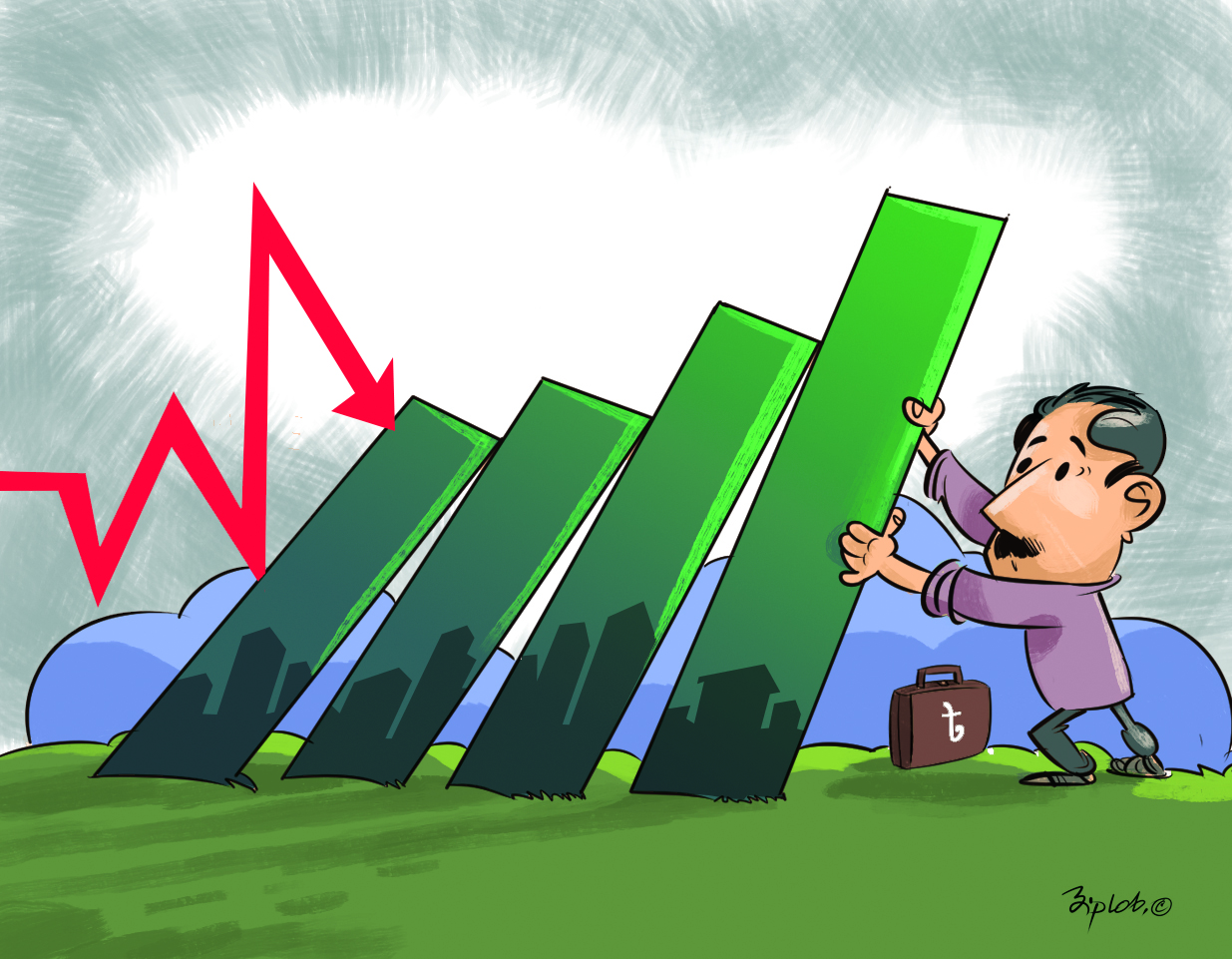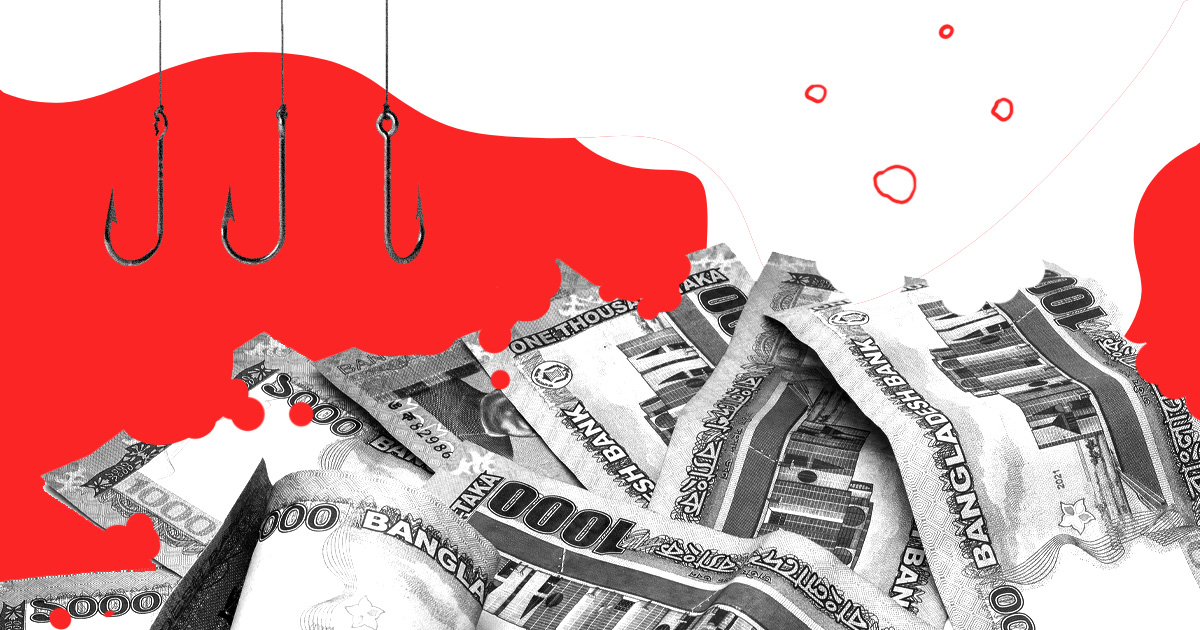Overcoming looming economic challenges in 2023

In 2023, several economies globally will face recession, while three large economies – the US, the EU and China – will continue to slow down, as the International Monetary Fund (IMF) observed on the eve of the new year. In October 2022, the IMF projected global economic growth to decrease from 3.2 percent in 2022 to 2.7 percent in 2023. This has been causing difficulties across countries and affecting the living standards of low-income households.
For Bangladesh, though inflation has subdued slightly in recent months, it is still much higher than the previous year and the government's projections. In December 2022, inflation reached 8.71 percent, compared to 6.05 percent in December 2021. Much of this is imported inflation since the country depends on imports of fuel and other essential commodities. Global inflation has also passed onto locally produced items due to high fuel, transport and logistical costs.
However, a part of this inflation is also due to the manipulation of a small group of players who hoard commodities and control the market.
Efforts to mitigate inflationary pressure are inadequate. The government initiative of selling essential foods at subsidised prices under family cards is not enough compared to the needs of low-income families. Besides inadequate coverage, there are also complaints of leakages in the distribution of subsidies and other social safety net programmes.
Fuel prices were raised by 51.2 percent for octane and 42.5 percent for diesel in August 2022. This has added to the pre-existing difficulties of the low- and fixed-income population, whose income is too inadequate to meet basic expenses. This also happened too soon after the last major hike of November 2021, when the government increased prices of diesel and kerosene by as much as 23 percent. Additionally, Bangladesh Energy Regulatory Commission (BERC) increased electricity tariff at the bulk level by 19.92 percent on November 21, 2022. This hike is apprehended to be passed on to consumers and push up their cost of living further.
High import growth and low remittance growth have resulted in a current account deficit. The external sector is also observing a depletion of forex reserves, which declined from USD 41.8 billion in June 2022 to USD 33.8 billion in December 2022. However, according to the IMF, Bangladesh's forex reserve is overestimated by USD 7.2 billion.
The domestic economy has limited fiscal space with a tax-GDP ratio of 8.5 percent in FY 2022, which is abysmally low. Due to trade misinvoicing alone, Bangladesh lost USD 8.27 billion between 2009 and 2018. If data on other types of illicit financial flows (such as tax evasion and smuggling) were available, this amount would turn out to be even bigger.
The weakness of the economy is vividly manifested through a vulnerable financial sector that is burdened by large amounts of non-performing loans (NPL). As of September 2022, the share of NPLs was 9.36 percent of total outstanding loans in the banking sector. The culture of letting habitual, wilful loan defaulters go scot-free and providing them with endless flexibility further encourages them. This has resulted in several scams during the past decade, wherein individuals and business groups have swindled depositors' money from banks in the name of taking out business loans.

Bangladesh's policymakers have taken a few measures to tackle the current economic situation. The government has prioritised infrastructure projects and postponed the implementation of projects that can wait. To save our forex reserve, the central bank has taken a few measures, such as increasing the margin of letters of credit (LC) and making the reporting of all types of foreign exchange transactions made by banks mandatory, and encashment by banks of 50 percent of the total balance held in exporters' retention quota accounts. Any visible outcome is yet to be observed.
In case of remittances, though the government offers 2.5 percent incentive to remitters for sending money through banks, remitters get a more attractive rate and better services when using informal channels to send money home. The difference between the amounts coming in through formal channels versus informal channels is large, and the service of the latter is more efficient than that of banks.
The supply shortage of dollars in the market has led to a free fall of the taka against the US dollar. Policymakers have kept the taka artificially stronger against the dollar for a long time by injecting US dollars into the market. Meanwhile, several competing countries such as China, India and Vietnam had devalued their local currencies. This made Bangladesh less competitive for its exports and less attractive for remitters to send money through formal channels. Though Bangladesh Bank allowed the market to determine the exchange rate a few months ago, the market is yet to be corrected.
In view of declining forex reserves, Bangladesh has sought a loan of USD 4.5 billion from the IMF. However, to qualify for this, Bangladesh must undertake several reform measures for improved governance and efficiency. The key elements of the IMF loan programme to Bangladesh will include creation of additional fiscal space, containing inflation and modernising the monetary policy framework, strengthening the financial sector, boosting growth potential, and building climate resilience.
However, reforms should be designed and implemented by the country itself, since reforms under the directives of external agencies could limit the policy space and ignore the country's reality.
The ongoing global economic crisis has affected all countries irrespective of their level of economic achievements. However, countries with an efficient system and robust institutional mechanisms are in a better position to overcome the challenges.
The economic challenges faced by Bangladesh are partially due to the fallout of the pandemic and the ongoing Russia-Ukraine war. But the core problems of our economy are rooted in the very nature of the country's governance, which has long been neglected.
In the current context, while the government should deal with the immediate challenges of containing prices, enhancing supplies, and providing support to limited-income families, it must also carry out medium-term measures. Actions are needed for reduction of financial sector vulnerabilities, enhancement of revenue mobilisation efforts, creation of a conducive environment for private and foreign investment, development of human capital, and creation of employment opportunities.
A shorter version of this article has been published in the East Asia Forum.
Dr Fahmida Khatun is executive director at the Centre for Policy Dialogue (CPD).




 For all latest news, follow The Daily Star's Google News channel.
For all latest news, follow The Daily Star's Google News channel. 

Comments